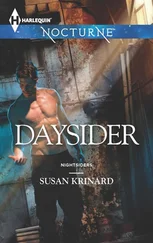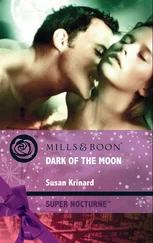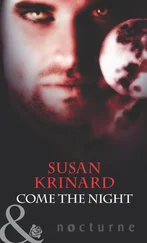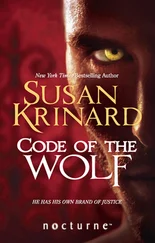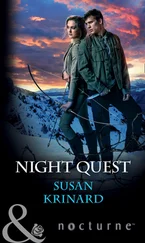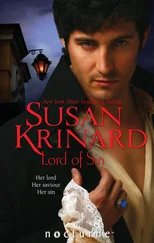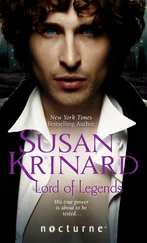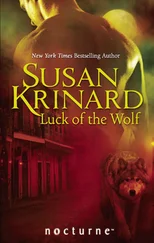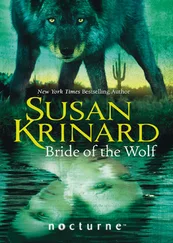He looked her up and down. “You possess nothing I desire.”
She tore his sleeve with her nails and let him go. “You will not win this battle, Idath. I shall go to the mortal realm myself. I shall tell her who she is, and then—”
“Tell her who she is?” Idath chuckled softly. “Alas, the charm on the amulet does more than forbid any Fane to touch her. None may reveal her true nature. You may speak the words, but she will not hear them.”
“You hate me so much?”
“Hatred is a mortal curse, leannán .”
“So is jealousy, mighty lord.”
“And blind ambition. You want the child only because your pride has been wounded and she is proof of your fecundity, a valuable object to be paraded before the Queen and High Fane like a pretty bauble. Perhaps you will not find the prize worth the effort.”
“It shall be more than worth it to lay your pride in the dust.”
He bowed. “As you wish, Béfind. The battle continues.”
He swept from the room, scattering the lesser Fane from his path. Béfind shrieked in rage and snatched a delicate crystal sculpture from its stand, shattering it against an ivory column.
“So he thinks he shall win?” she hissed as the hobs and sprites cowered at her feet. “He dreams that he can best Béfind?”
She threw herself down into her chair and coiled her hair between her fists. So she could not tell the girl what she was. That was not quite the defeat Idath believed. There would be ways to approach the child and groom her for her rightful future, all without challenging the amulet’s enchantment. Béfind would not leave such an important task to inferiors. She would go through the Gate herself. She would learn how best to handle Donal Fleming, if he should prove to be an obstacle to her ambitions. And she would have what was rightfully hers, once and for all.
THERE WAS NO PART of England, Donal reflected, more thoroughly English than the Cotswolds.
The view from the carriage window was one of gently rolling hills dotted with clouds of grazing sheep, low stone walls turned golden in the clear sunlight, homely farmsteads and quaint cottages with thick thatched roofs. Westmorland and Yorkshire still had their shares of wilderness in crags and sills, heaths and moors, becks and forces and lakes—hidden sanctuaries where patches of ancient woodland and unsullied mountains crouched just beyond the fringes of civilization—but Donal doubted he would find such places here.
He leaned back in the seat and pinched the bridge of his nose. The minds of the animals he had heard along the winding road to Edgecott had been largely contented ones that knew neither worry nor anticipation of the future. Even Sir Geoffrey Amesbury’s matched bays were well fed and glossy of coat, never asked to push beyond their endurance or forced to suffer the brutality of the bearing-rein. In the amber sunshine of a bright spring morning, it was almost possible to forget the cruelty and indifference that seemed so much a part of human character.
Donal did not forget. But he allowed himself to be distracted by the look on Ivy’s face as she craned her neck to absorb every detail of the neat little village that gave the Amesbury estate its name. Round-faced children and prosperous cottagers waved from the verge of the cobbled lane that passed through the center of the village, and Ivy waved back.
Once she had made the decision to visit Edgecott, her hard shell of defiance and suspicion had dropped away like the halves of a ripe walnut. Soon after she and Donal had boarded the train in York, she had cast off her fears with the impulsiveness of youth and wholeheartedly embraced the excitement of the journey.
Her enthusiasm eased Donal’s mind. Seventeen years old she might be, but her childhood had been robbed of so many simple pleasures that she devoured each new experience with innocent delight. Sir Reginald, who had chosen her as his new lifelong companion, perched on her lap and laughed with a lolling tongue, sharing her joy.
Neither girl nor dog had been in the least constrained in Donal’s presence. He had no interest in enforcing arbitrary rules of conduct, and ignored the occasional pointed stares and whispers aimed at “that wild young woman” by starchy matrons and stiff-rumped gentlemen who resembled exotic fowl escaped from their pens. Ivy had not yet been introduced to corsets; her blossoming figure was now quite apparent to Donal’s previously ignorant eye. Yet he had no desire to cut short her last days of freedom before Mrs. Hardcastle applied the shackles of rigid morals and genteel hypocrisy.
He prayed that Ivy’s courage and adaptability would enable her to accept the world Cordelia intended to make for her.
The carriage rattled out of the village and past fields and pastures bordered by light gray dry-stone walls. Soon it reached the high iron gates that guarded Edgecott’s stately park.
The gates stood open in welcome, but Donal regarded them with a shiver of foreboding. They were merely symbols of power and prosperity, harmless in themselves, but to Donal’s mind they resembled nothing so much as a cage. A part of him believed that once he passed through them, he would be caught in the snares of civilization forever.
“Look at the trees!” Ivy said. “I never saw such tall ones in Yorkshire!”
The woods of Edgecott’s park were indeed impressive. They reminded Donal of the ancient forest of Hartsmere, where his father had roamed for millennia as guardian and protector of every living thing within it. Yet most of these trees had been grown, not by nature, but by Amesbury ancestors who had planted the wood to enhance their prestige and shield their property from the eyes of lesser mortals.
Donal was so lost in thought that he didn’t see the great house until Ivy drew his attention with an exclamation of approval. She had good reason for her admiration. The main house at Edgecott was built of the fine native stone, and while it had obviously been altered over several centuries, with a classical wing and ornamentations added well after its original, Elizabethan construction, it was a handsome building as such things went.
Standing in a neat row at the foot of the stairs were several male and female servants, including footmen, maids, an older woman who must have been the housekeeper and a tall man of impeccable dignity whose demeanor declared him master of the household staff. As the carriage rounded the gravel drive, one of the footmen broke ranks and hurried up the stairs.
The coachman eased the horses to a stop before the stairs, and the footman leaped down to lower the steps. Ivy hopped out, ignoring the footman’s proffered hand, and stood gazing up at the massive limestone facade.
Donal descended more slowly, not in the least eager to deal with a bevy of servants whose only purpose was to wait hand and foot on their employers. He avoided them by going directly to the horses, thanking them for their work and examining their legs and hooves while the coachman watched curiously.
Ivy inched up beside him, Sir Reginald in her arms. “They’re all staring at me,” she whispered, glancing back at the servants. “Where is Cordelia?”
Like Donal, Ivy had taken to referring to Mrs. Hardcastle by her given name, and Donal had not discouraged her. “I’m certain she will wish to welcome you herself,” he said, giving the horses a final pat.
Ivy gripped his sleeve. “Maybe it wasn’t such a good idea to come here after all,” she said. “I don’t belong in a place like this.”
“How do you know, when you’ve scarcely seen any of it?” he said. But she gave him a narrow look that suggested she knew he was every bit as nervous as she.
“You really are going to stay?” she demanded.
Читать дальше


